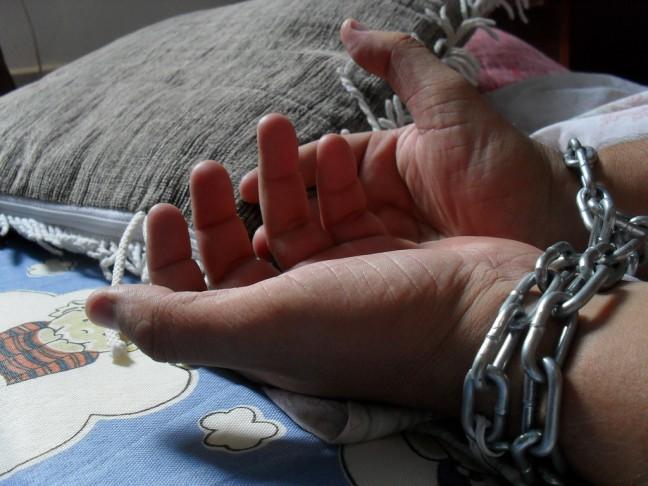With bipartisan bills to combat sex trafficking and Attorney General Brad Schimel’s recently published opinion editorial highlighting the issue, Wisconsin stakeholders are working together to fight human trafficking.
Trafficking in Wisconsin
According to the National Human Trafficking Resource Center, there were 50 cases of human trafficking in Wisconsin in 2015, 45 of which were sex trafficking, three of them labor trafficking and two of them both.
The number of people being trafficked could be much higher than these reported cases, Rep. Lisa Subeck, D-Madison, said. It’s hard to know for sure how many people are being victimized because “so much of this is being done in the dark,” she added.
Part of the problem with how sex trafficking cases are handled, Subeck said, is that survivors of sex trafficking are often treated as perpetrators rather than victims. She said many times victims are charged with prostitution rather than receiving help for their traumatic experience. Lawmakers should go a step further and allow those who were survivors of sex trafficking to have immunity from these sorts of prosecutions, Subeck added.
Liz Marquardt, community education and strategic initiatives director at Sojourner Family Peace Center, a domestic abuse treatment center, said many victims do not think the legal system will protect them, which makes it harder for survivors to find help.
“Trafficking survivors are very likely to not believe that the criminal legal system is going to be able to protect them,” Marquardt said. “And partly that might be true … if their experience is that the criminal legal system isn’t able to keep them safe, then it’s not the first place they’ll turn.”
Attorney general’s response
Sex trafficking occurs in almost every county in the state, according to 2013 Department of Justice numbers, Schimel said in his article. He said human trafficking is an issue that needs more attention throughout the state.
“Human trafficking is an insidious crime that isolates victims and exploits them for profit,” Schimel wrote. “It is happening right here in Wisconsin, in small and large cities, towns and villages, both urban and suburban — places that you might not expect.”
Marquardt said she thinks it’s great that the “top cop” in the state is talking about the issue and that there are statewide efforts to address it.
Legislation in the works
A bipartisan bill Subeck coauthored would classify child sex trafficking as child abuse, allowing child protective services to be involved in the cases. Subeck said her bill is a step in the right direction for dealing with the issue of sex trafficking in the state because it would strengthen the processes of finding justice and promoting recovery.
“I want to emphasize that [this bill] is a really good step, it’s something that we absolutely should do,” Subeck said. “We absolutely should investigate these acts as child sexual abuse, but it really isn’t enough, and we really should do more.”
The Committee on Children and Families passed the bill unanimously Feb. 11.
Another bipartisan bill, proposed by Sen. Scott Fitzgerald, R-Juneau, Sen. Jennifer Shilling, D-La Crosse, Rep. Joel Kleefisch, R-Oconomowoc, and Rep. Chris Taylor, D-Madison, would allow survivors to keep their private address confidential, so abusers can’t find them.
The four lawmakers said in a joint statement that it’s important for there to be a bipartisan effort to address this issue.
“While the four of us don’t always agree, there is one thing we can all get behind; the safety of survivors of domestic abuse, stalking and human trafficking,” Fitzgerald, Shilling, Kleefisch and Taylor said in the statement.
The bill passed unanimously in the Assembly, and was unopposed in the Senate Feb. 9 and now heads to Gov. Scott Walker’s desk.
Recovery efforts
Marquardt said a multidisciplinary approach is the best way to help victims. Health and social services, domestic violence agencies, crisis housing, faith-based organizations and law enforcement all need to work together to tackle this issue, she added.
Sojourner Family Peace Center provides help hotlines, shelters, legal advocacy, support groups and life skills training, such as resume help, Marquardt said. Other possible improvements include increasing financial assistance to victims so they can have access to legal services, crisis housing or clothing for a job interview, she said.
“We don’t believe that any one of us has the answer, but that we need to work together in a multidisciplinary way, so that people have a broad spectrum of things that they can access … and that they get their health and safety needs met as well,” Marquardt said.


